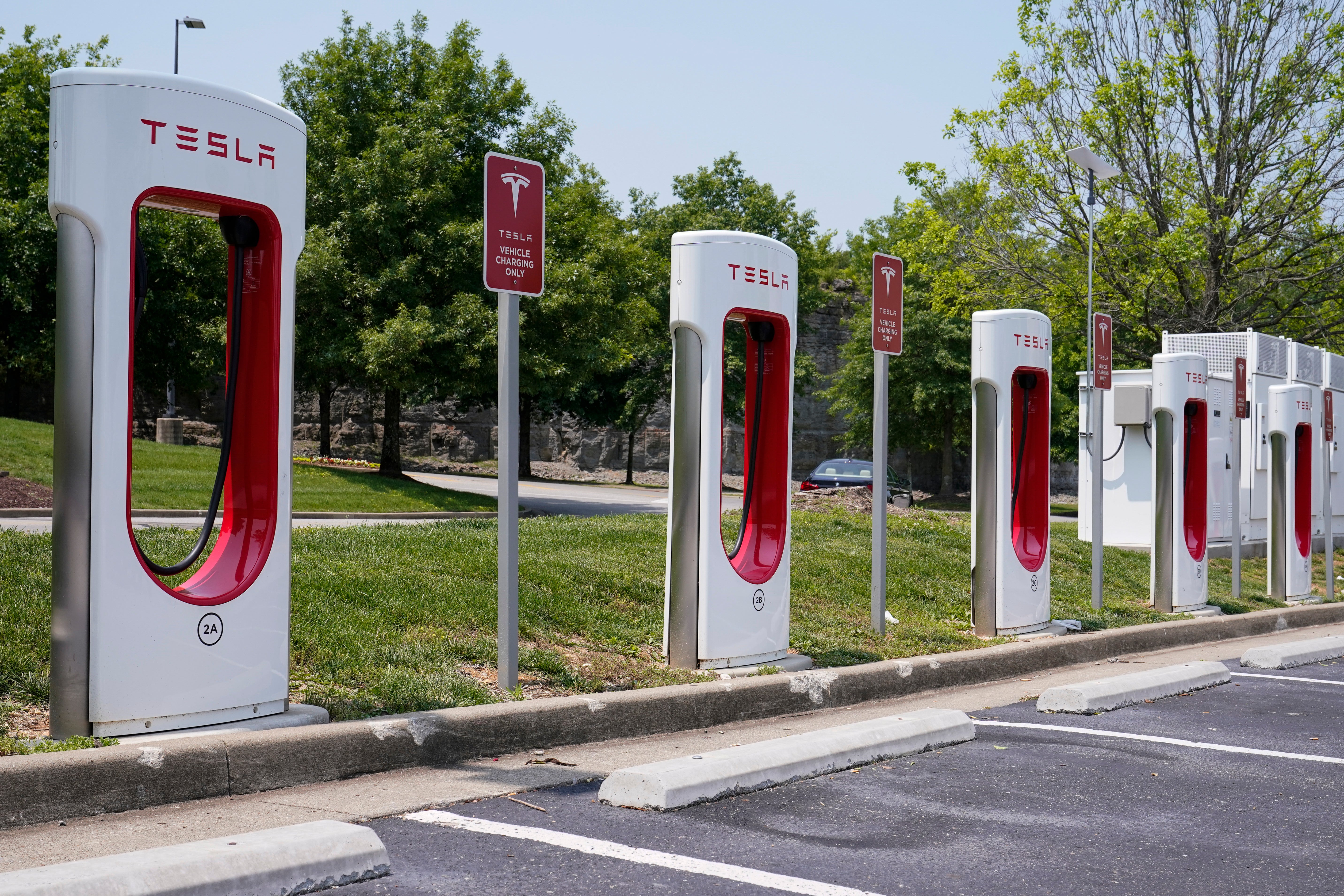Biden making $20 billion available from 'green bank' for clean energy projects
The Biden administration is making available $20 billion from a federal “green bank” for clean energy projects such as residential heat pumps, electric vehicle charging stations and community cooling centers

Your support helps us to tell the story
From reproductive rights to climate change to Big Tech, The Independent is on the ground when the story is developing. Whether it's investigating the financials of Elon Musk's pro-Trump PAC or producing our latest documentary, 'The A Word', which shines a light on the American women fighting for reproductive rights, we know how important it is to parse out the facts from the messaging.
At such a critical moment in US history, we need reporters on the ground. Your donation allows us to keep sending journalists to speak to both sides of the story.
The Independent is trusted by Americans across the entire political spectrum. And unlike many other quality news outlets, we choose not to lock Americans out of our reporting and analysis with paywalls. We believe quality journalism should be available to everyone, paid for by those who can afford it.
Your support makes all the difference.The Biden administration is making available $20 billion from a federal “green bank” for clean energy projects such as residential heat pumps, electric vehicle charging stations and community cooling centers.
Two programs, worth $14 billion and $6 billion, respectively, will offer competitive grants to states, tribes and nonprofits to invest in clean energy projects, with a focus on disadvantaged communities, the White House says.
Vice President Kamala Harris, Environmental Protection Agency Administrator Michael Regan and other officials will announce the grant competitions Friday at a historically black university in Baltimore.
Congress created the green bank, formally known as the Greenhouse Gas Reduction Fund, in last year’s climate law. The grant competitions follow a $7 billion Solar for All program launched last month for residential and community solar projects in low-income communities. All three programs will be overseen by the green bank, with grant awards expected next year.
Regan, whose agency oversees the green bank, called the grant programs a way to “tackle the climate crisis and reshape the economy'' at the same time. The three programs will offer "transformational resources'' for many disadvantaged communities that often are passed over by commercial banks and investors, he said.
“These communities have been left behind in this transition, and it’s going to be a strong signal to the market for us to pull private capital off the sidelines'' in urban and neglected areas, Regan told The Associated Press in an interview.
The $14 billion National Clean Investment Fund will provide grants to up to three national clean financing institutions, enabling them to partner with states and the private sector to provide affordable financing for tens of thousands of clean technology projects nationwide, the EPA said.
The $6 billion Clean Communities Investment Accelerator, meanwhile, will provide grants for up to seven nonprofits that will work with other groups to provide access to investments needed to deploy clean technology projects. Hundreds of community lenders, credit unions, housing finance agencies and other institutions will finance clean technology projects in low-income and disadvantaged communities, the EPA said.
Grants from the National Clean Investment Fund will enable individuals, families, nonprofits, state and local governments and small businesses to access needed capital to deploy a range of clean-energy projects for homes, businesses and communities, the EPA said. The projects will reduce air and water pollution while creating jobs and lowering energy costs, officials said.
Projects that could be funded include cooling centers in some urban areas suffering from extreme heat, as well as charging stations for electric vehicles, retrofitting buildings and installing efficient heating and air-conditioning systems, Regan said.
“This is really about ensuring that every person in this country is experiencing the best quality of life as possible with clean energy technology providing that landing,'' he said.
The green bank — modeled after similar banks established in states such as Connecticut, New York and California — is expected to unlock billions of dollars in private investment, Regan and other officials said.
“This is exciting because it’s also directionally where the market is already going,'' Regan said. “We’re just ensuring that we’re signaling the types of investments needed and ... bringing that private capital off the sidelines to match that energy.''
Even before the grants are awarded, Republicans in Congress have taken aim at the green bank, calling it a taxpayer-funded “slush fund” ripe for abuse.
A GOP energy package that passed in March would repeal money allocated to the green bank. Rep. Gary Palmer, R-Ala., said the fund would benefit Wall Street firms but would not "lower the cost of heating for American families.”
House Energy and Commerce Chair Cathy McMorris Rodgers, R-Wash., said the green bank was “rushed into law with no accountability or oversight necessary for taxpayer stewardship.''
Regan disputed that, saying officials "spent a lot of time designing this fund.''
He pledged a “very rigorous reporting system on how these grantees are investing this capital,'' adding: “It’s all designed to be tracked with investments in low-carbon strategies, especially for those who otherwise would not be able to participate.''